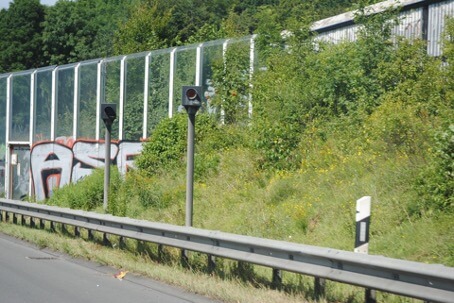News
Radar warning apps in road traffic: ban with backdoors

Source: pixabay/Sauerlaender
Radar warning apps in road traffic: ban with backdoors
Excessive speed is one of the most frequent causes of road accidents. Speed cameras and radar traps are therefore intended to curb the speeding that is responsible for this. However, this is made more difficult by the use of radar detectors and speed camera apps. Although their use is prohibited, they are used by almost half of all drivers in Germany.
According to the German Road Traffic Act (StVO), a driver is prohibited from operating or carrying operationally a device intended to indicate or interfere with traffic control measures. In the case of other technical devices which, in addition to other purposes of use, can also be used to display or interfere with traffic control measures, the corresponding device functions must not be used. It can cost 75 euros and a point in the driving suitability register in Flensburg if drivers do not comply with the ban. However, as the Arag experts point out, drivers need not fear that their cell phones will be confiscated. That would be disproportionate. However, the police could confiscate operational radar detectors and order the app on the smartphone to be deleted.
Nevertheless, according to Bitkom, almost half of all drivers use radar warning devices or speed camera warnings on their smartphone or navigation system when they are on the road with their vehicle.
There is also a gray area that can be exploited in the process. The StVO explicitly refers to those who drive a vehicle - i.e., the car driver. Therefore, the ban does not apply to co-drivers. He is allowed to pass on warnings about speed cameras and speed traps verbally to the driver. In addition, the driver is very much allowed to find out about speed traps or speed cameras on a smartphone or sat nav before driving or during a rest stop. According to Arag, warnings about speed cameras on the radio are also permitted, as the warning is given regardless of the driver's current location. While warning other drivers with hand signals, for example, is permitted, flashing the headlights as a warning signal for speed cameras is taboo.
So far, there are no uniform rules in Europe regarding the carrying of radar detectors. According to ADAC, the Conference of European Ministers of Transport (CEMT) is trying to change this and has issued a recommendation banning these devices.
In France, navigation devices that display traffic control measures are prohibited.
Both the use and the mere carrying of such devices is prohibited. If the French police find a radar detector during a traffic check, a fine of up to 1,500 euros is due and the device is seized. The ban applies to mobile navigation systems, navigation devices integrated in cars, and cell phones with navigation functions. If necessary, confiscation of the vehicle in the case of permanently installed devices.
GPS navigation devices with a POI warner as an "announcement function" are permitted in Austria. However, radar warning devices that can be used to influence or interfere with technical traffic monitoring equipment are prohibited. These may neither be attached to nor carried in motor vehicles. Violators face an administrative fine of up to 5,000 euros and the device will be confiscated.
In Switzerland, all devices that warn of mobile or permanently installed speed measuring points are prohibited. This includes all GPS navigation devices that have activated a radar warning POI - for example, navigation systems and correspondingly equipped cell phones. Device combinations of a GPS device with a cell phone or a notebook are also prohibited if they have a corresponding warning function. In Switzerland, if a police officer can prove to a motorist that the warning function is activated, he or she faces a fine of at least 200 euros.
GPS navigation devices with POI radar alerts are currently permitted in Belgium, Denmark, Finland, Great Britain, Italy, Croatia, Luxembourg, the Netherlands, Norway, Portugal, Russia, Sweden, Serbia, Slovenia, Spain and Hungary. The legal situation in the Czech Republic and Bulgaria is uncertain: In case of doubt, however, one should always assume a ban.
The use of the devices is also prohibited in Bosnia-Herzegovina, Ireland, Macedonia, Slovakia, Belarus and Cyprus.
